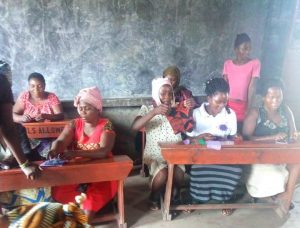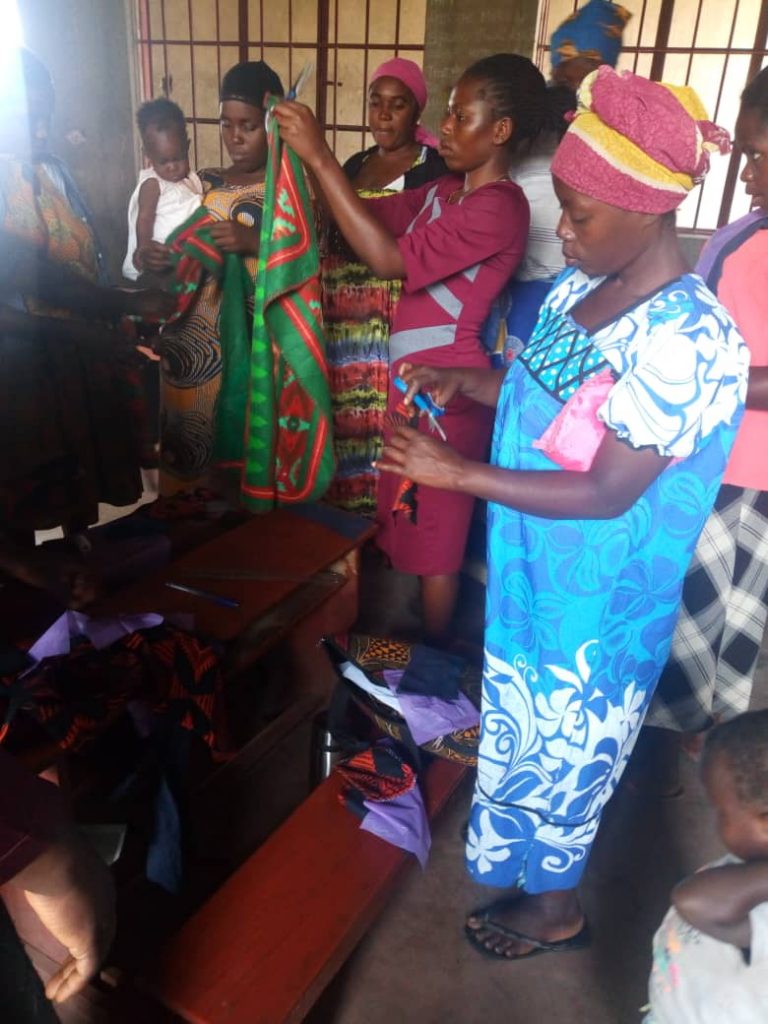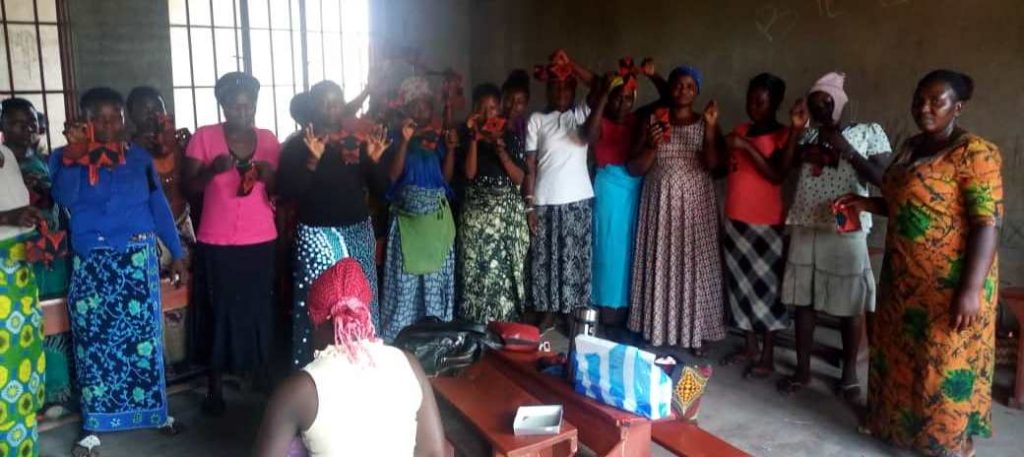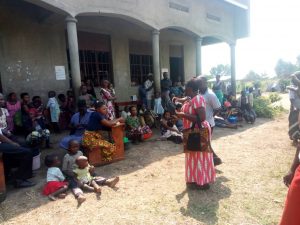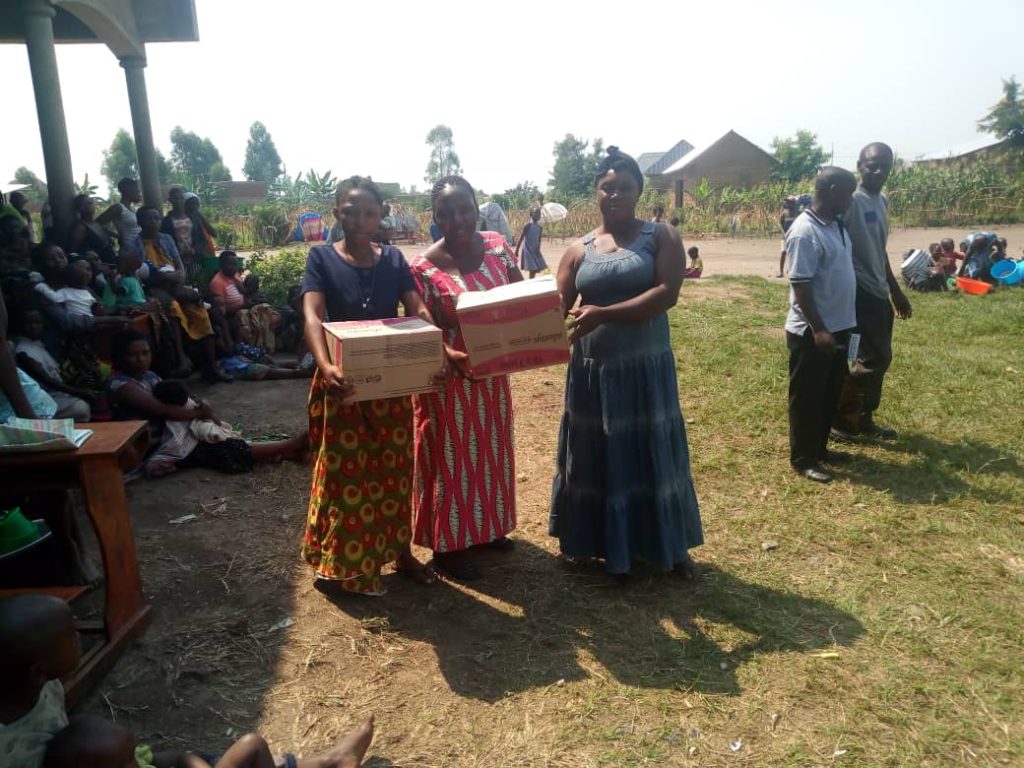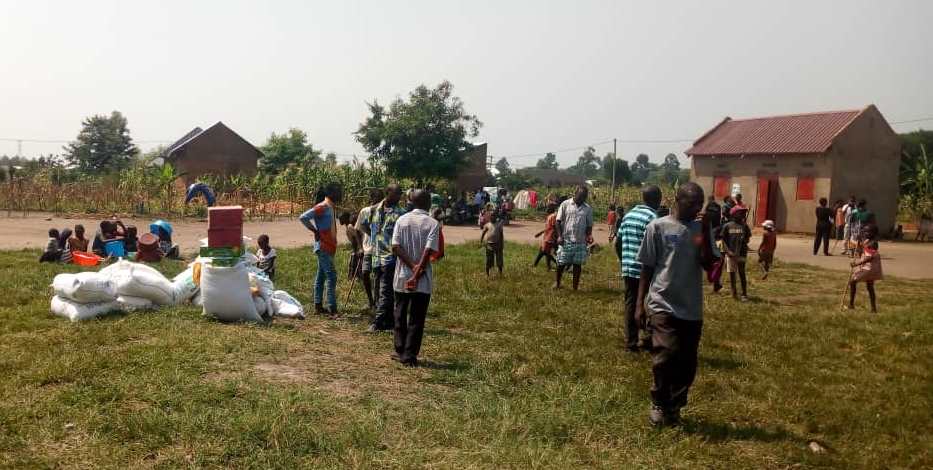Child marriage is a global problem affecting millions of girls across the world. It is considered a human rights violation because it deprives those involved of education and health services, the chance to learn skills and develop their personalities and leaves them vulnerable. It is an appalling violation of human rights and robs girls of their education, health and long-term prospects. Uganda is one of the countries with the highest early and forced marriage. 10% of girls are married off before the age of 15 and 40% of girls re married off before their 18th birth day (UNICEF 2011). Even when Marriage remains one of the celebrated moments and a key millstone among families across Rwenzori region. Sadly, there is no more cause of celebration today because of the high cases of child marriages in the region. In 2014, Kasese District hit the headlines when a 12-year-old girl was “officially” married off. Currently, several villages in Kasese are dotted with child mothers. Sowed, Kitanywa, the Kasese District Senior Probation and Social Welfare Officer, then said the district was grappling with high school dropout rates. He said most girls are persuaded to drop out of school by men into marriage according to Uganda radio network (URN Jan 2020). Recent statistics in Kasese indicate that for every 94% girl children who attend primary one, only 32% manage to reach primary seven. Three-quarters of the children who start primary education never make it to secondary level. Kitanywa blames this trend on violence against children in school, parental neglect and lack of cooperation among the community to have guided this trend. The narrative seems not to have changed either. This was revealed during a radio talk show conducted by GEDA Uganda this week about the causes, dangers and effects of early marriages. It was highlighted
Child marriage is a global problem affecting millions of girls across the world. It is considered a human rights violation because it deprives those involved of education and health services, the chance to learn skills and develop their personalities and leaves them vulnerable. It is an appalling violation of human rights and robs girls of their education, health and long-term prospects.
Uganda is one of the countries with the highest early and forced marriage. 10% of girls are married off before the age of 15 and 40% of girls re married off before their 18th birth day (UNICEF 2011).
Even when Marriage remains one of the celebrated moments and a key millstone among families across Rwenzori region. Sadly, there is no more cause of celebration today because of the high cases of child marriages in the region.
In 2014, Kasese District hit the headlines when a 12-year-old girl was “officially” married off. Currently, several villages in Kasese are dotted with child mothers.
Sowed, Kitanywa, the Kasese District Senior Probation and Social Welfare Officer, then said the district was grappling with high school dropout rates. He said most girls are persuaded to drop out of school by men into marriage according to Uganda radio network (URN Jan 2020).
Recent statistics in Kasese indicate that for every 94% girl children who attend primary one, only 32% manage to reach primary seven. Three-quarters of the children who start primary education never make it to secondary level.
Kitanywa blames this trend on violence against children in school, parental neglect and lack of cooperation among the community to have guided this trend.
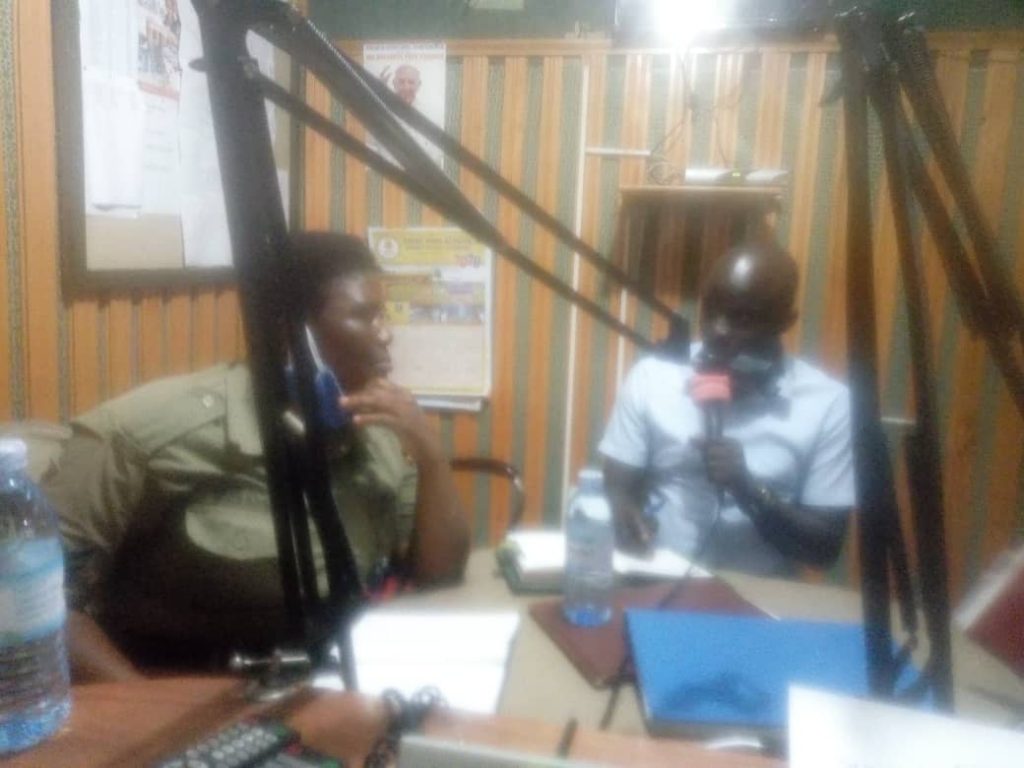 The narrative seems not to have changed either. This was revealed during a radio talk show conducted by GEDA Uganda this week about the causes, dangers and effects of early marriages. It was highlighted by the Officer in Charge (OC) child and family protection unit Kasese that poverty, domestic violence, wars or displacement, peer pressure, negative cultural beliefs, lack of essential needs like sanitary pads are the most causes of early marriages. Adverse effects of this problem has led to child mothers, poverty to their young families, stunted brain development and growth of children produced since they do not have enough and the rightful nutritious foods to feed their children on, family breakages, high infant mortality rate and other health challenges like fistula since these girls bones are not strong enough to push babies. According to statistics from Kasese Police since March 2020, 30 children have since been reported married, 24 defiled and for Isule health center in Maliba sub county, from December 2019 to March 2020 50 girls were attending antenatal care. The new vision of 13th March 2020, Government is worried that about 10 millon children may not go back to school after lockdown both boys and girls. Currently kasese has Maliba, Munkunyu, Mpondwe-Lhubiriha town council, Karambi, Hima, Karusandara, Nyakatonzi and Kilembe sub-counties leading in early child marriages.
The narrative seems not to have changed either. This was revealed during a radio talk show conducted by GEDA Uganda this week about the causes, dangers and effects of early marriages. It was highlighted by the Officer in Charge (OC) child and family protection unit Kasese that poverty, domestic violence, wars or displacement, peer pressure, negative cultural beliefs, lack of essential needs like sanitary pads are the most causes of early marriages. Adverse effects of this problem has led to child mothers, poverty to their young families, stunted brain development and growth of children produced since they do not have enough and the rightful nutritious foods to feed their children on, family breakages, high infant mortality rate and other health challenges like fistula since these girls bones are not strong enough to push babies. According to statistics from Kasese Police since March 2020, 30 children have since been reported married, 24 defiled and for Isule health center in Maliba sub county, from December 2019 to March 2020 50 girls were attending antenatal care. The new vision of 13th March 2020, Government is worried that about 10 millon children may not go back to school after lockdown both boys and girls. Currently kasese has Maliba, Munkunyu, Mpondwe-Lhubiriha town council, Karambi, Hima, Karusandara, Nyakatonzi and Kilembe sub-counties leading in early child marriages.
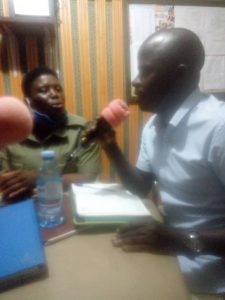 The magnitude of the problem is big and needs efforts of every duty bearer, parents, civil society organizations, Government to curb this. GEDA Uganda is adding her small contribution to end this vice by mass awareness through radio talk shows, drama series, engaging girls and women in the make of reusable sanitary pads for sustainability purposes and avoiding temptations from the girls and women with bad coping up mechanisms.
The magnitude of the problem is big and needs efforts of every duty bearer, parents, civil society organizations, Government to curb this. GEDA Uganda is adding her small contribution to end this vice by mass awareness through radio talk shows, drama series, engaging girls and women in the make of reusable sanitary pads for sustainability purposes and avoiding temptations from the girls and women with bad coping up mechanisms.
It is our responsibility to end child marriages now. It’s time up. Together we can defeat this vice.
GEDA Uganda toll free line 0800100029 is still available to report such cases just in case you have no access to police and other responsible leaders.
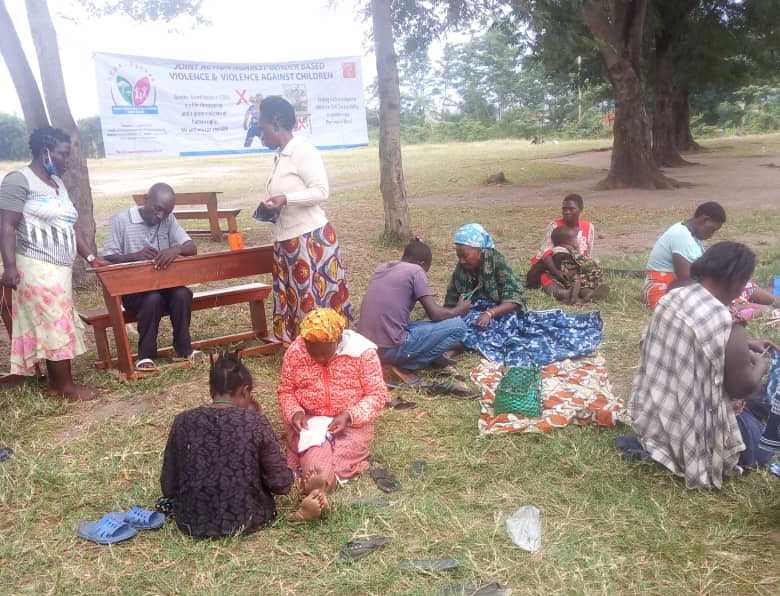



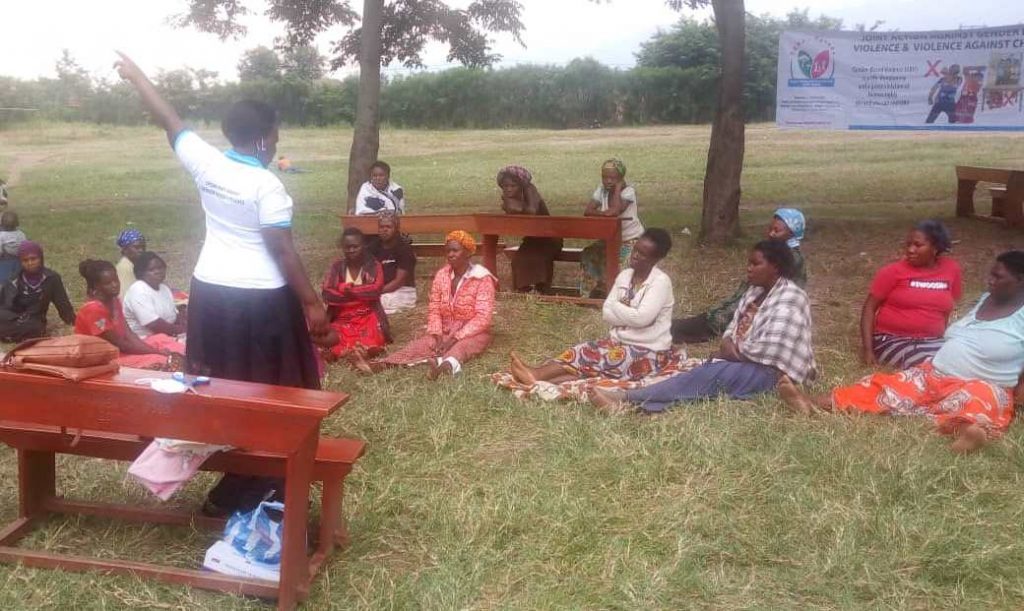

 The narrative seems not to have changed either. This was revealed during a radio talk show conducted by GEDA Uganda this week about the causes, dangers and effects of early marriages. It was highlighted by the Officer in Charge (OC) child and family protection unit Kasese that poverty, domestic violence, wars or displacement, peer pressure, negative cultural beliefs, lack of essential needs like sanitary pads are the most causes of early marriages. Adverse effects of this problem has led to child mothers, poverty to their young families, stunted brain development and growth of children produced since they do not have enough and the rightful nutritious foods to feed their children on, family breakages, high infant mortality rate and other health challenges like fistula since these girls bones are not strong enough to push babies. According to statistics from Kasese Police since March 2020, 30 children have since been reported married, 24 defiled and for Isule health center in Maliba sub county, from December 2019 to March 2020 50 girls were attending antenatal care. The new vision of 13th March 2020, Government is worried that about 10 millon children may not go back to school after lockdown both boys and girls. Currently kasese has Maliba, Munkunyu, Mpondwe-Lhubiriha town council, Karambi, Hima, Karusandara, Nyakatonzi and Kilembe sub-counties leading in early child marriages.
The narrative seems not to have changed either. This was revealed during a radio talk show conducted by GEDA Uganda this week about the causes, dangers and effects of early marriages. It was highlighted by the Officer in Charge (OC) child and family protection unit Kasese that poverty, domestic violence, wars or displacement, peer pressure, negative cultural beliefs, lack of essential needs like sanitary pads are the most causes of early marriages. Adverse effects of this problem has led to child mothers, poverty to their young families, stunted brain development and growth of children produced since they do not have enough and the rightful nutritious foods to feed their children on, family breakages, high infant mortality rate and other health challenges like fistula since these girls bones are not strong enough to push babies. According to statistics from Kasese Police since March 2020, 30 children have since been reported married, 24 defiled and for Isule health center in Maliba sub county, from December 2019 to March 2020 50 girls were attending antenatal care. The new vision of 13th March 2020, Government is worried that about 10 millon children may not go back to school after lockdown both boys and girls. Currently kasese has Maliba, Munkunyu, Mpondwe-Lhubiriha town council, Karambi, Hima, Karusandara, Nyakatonzi and Kilembe sub-counties leading in early child marriages. The magnitude of the problem is big and needs efforts of every duty bearer, parents, civil society organizations, Government to curb this. GEDA Uganda is adding her small contribution to end this vice by mass awareness through radio talk shows, drama series, engaging girls and women in the make of reusable sanitary pads for sustainability purposes and avoiding temptations from the girls and women with bad coping up mechanisms.
The magnitude of the problem is big and needs efforts of every duty bearer, parents, civil society organizations, Government to curb this. GEDA Uganda is adding her small contribution to end this vice by mass awareness through radio talk shows, drama series, engaging girls and women in the make of reusable sanitary pads for sustainability purposes and avoiding temptations from the girls and women with bad coping up mechanisms.
